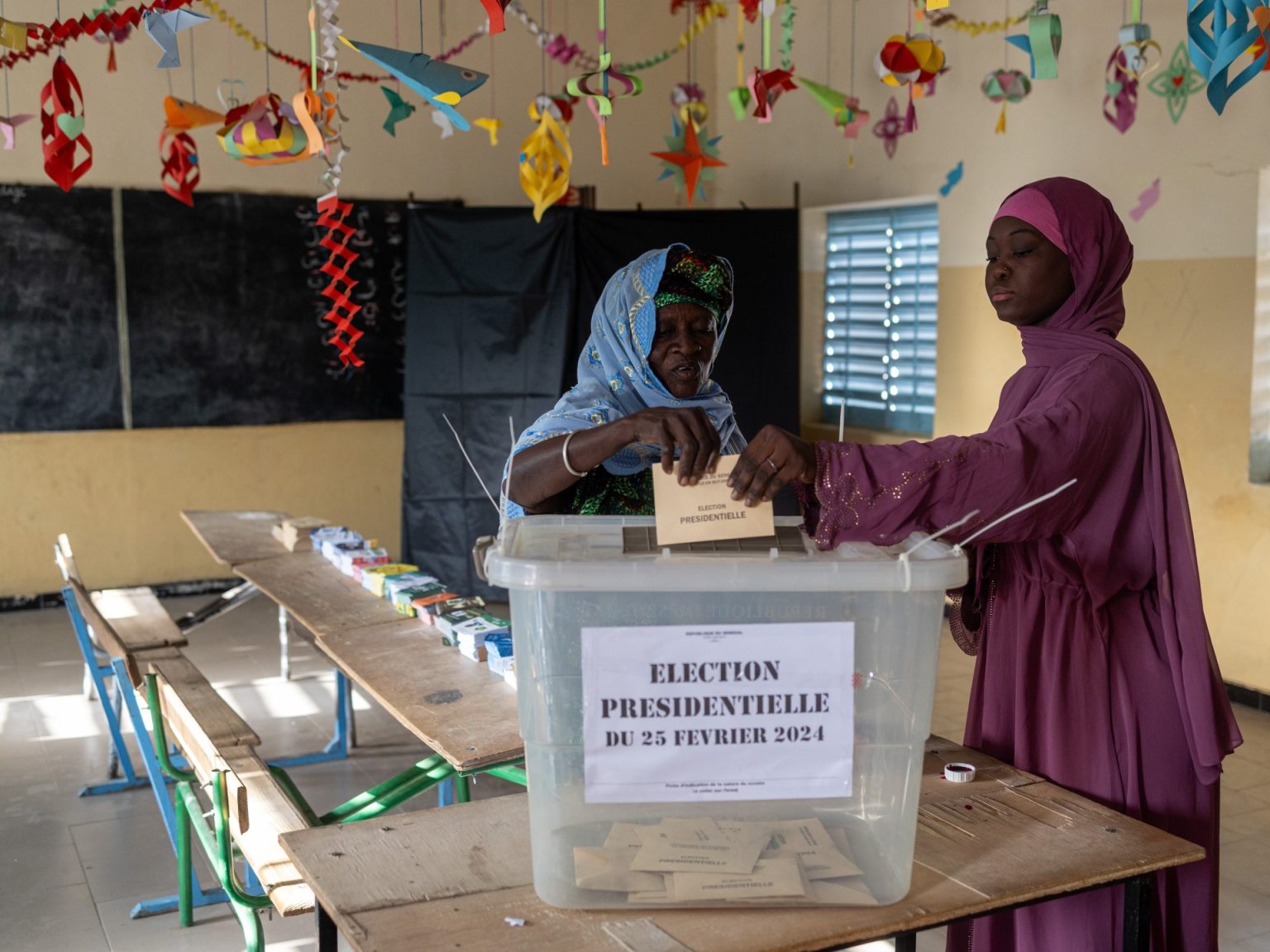Vote counting is currently underway in Senegal following a delayed presidential election that many hope will bring about change after a turbulent political period marked by violent anti-government protests. Out of over 17 million people in the country, more than seven million were registered to vote in Sunday’s election. Nineteen contenders are competing to replace President Macky Sall, who is not on the ballot for the first time in Senegal’s history. His ruling coalition has selected former prime minister Amadou Ba, 62, as its candidate. Opposition leader Ousmane Sonko, who was disqualified from the race due to a defamation conviction, is supporting the co-creator of his dissolved PASTEF party, Bassirou Diomaye Faye.
The amnesty law that was passed recently allowed Sonko and Faye to be released from jail just a few days before the vote. Both of them are campaigning under the banner “Diomaye is Sonko”. Other candidates in the presidential race include Dakar’s former Mayor Khalifa Sall, veteran politician Idrissa Seck, former Prime Minister Mahammed Boun Abdallah Dionne, close ally of President Sall Aly Ngouille Ndiaye, and entrepreneur and political newcomer Anta Babacar Ngom, who is the sole female candidate. To avoid a run-off election, a candidate must secure more than 50 percent of the vote, with official results expected to be announced next week.
The election has been described as “unusual”, with a mix of anticipation, fear, and excitement among voters, especially young people. Lines formed outside polling stations in Dakar, and the elite police force was deployed across the city to ensure voter verification. Many voters expressed their happiness at being able to exercise their right to vote, citing high risks of election delays. Economic concerns were a key driver for voters, with issues such as high living costs and unemployment influencing choices at the ballot box.
Support for opposition figures like Sonko and Faye has grown due to frustrations over the lack of job opportunities, particularly among the youth. The rising cost of living, driven by global economic factors, has also undermined support for the ruling authorities. Issues such as the planned launch of oil and gas production and the potential benefits for the wider population have led to debates on how natural resource wealth will be managed going forward. The opposition coalition has promised to renegotiate energy contracts to maximize revenues, while the ruling party candidate Ba is running on a platform of “Prosperity Shared”.
Despite economic frustrations, election observers have reported a relatively peaceful voting process, with hundreds of observers monitoring the fairness of the vote. The presence of civil society groups, the African Union, ECOWAS, and the European Union in observing the election has helped ensure transparency. Observers noted long queues at polling stations, indicating high voter turnout and a strong desire among the Senegalese people to have their voices heard. The calm and orderly voting process has been seen as a victory for democracy by many in Senegal, with hopes for a smooth transition to a new government in the coming days.


